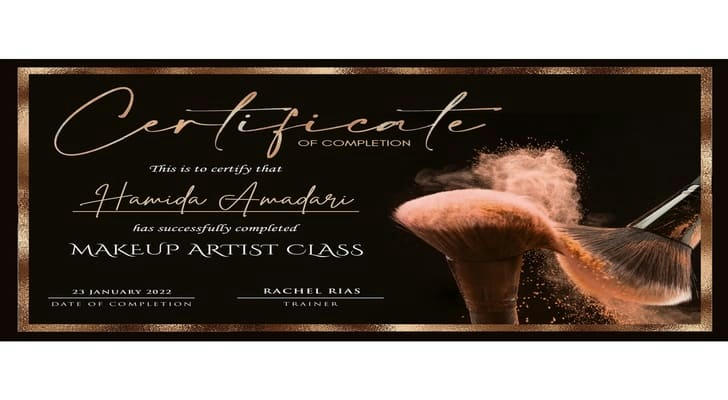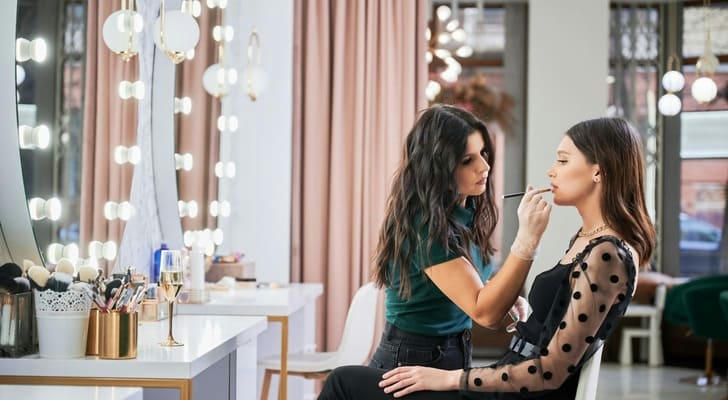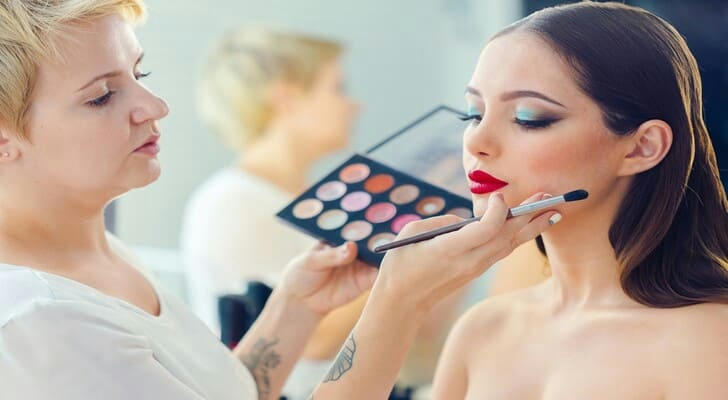The Ultimate Guide to Makeup Artist Certification

Becoming a certified makeup artist is a crucial step for anyone looking to build a successful career in the beauty industry. With the right certification, you can enhance your skills, boost your credibility, and open doors to a wide range of opportunities. In this guide, we will explore the importance of makeup artist certification, the different types of certifications available, and how to choose the right one for your career goals.
Why Certification Matters
In the competitive world of beauty, standing out is essential. Certification serves as a tangible proof of your expertise and dedication to the craft. It not only validates your skills but also builds trust with clients and employers. A certified makeup artist is more likely to be hired for professional gigs, such as weddings, fashion shows, and photo shoots. Moreover, certification can provide a solid foundation for further growth and specialization in the industry.
Types of Makeup Artist Certifications
Basic Certification
Basic makeup artist certification is an excellent starting point for beginners. These programs typically cover fundamental techniques, such as skin preparation, color theory, and basic makeup application. They are designed to equip you with the essential skills needed to work in the beauty industry. Many beauty schools and online platforms offer basic certification courses that can be completed in a relatively short period. This type of certification is ideal for those who want to enter the field quickly and gain hands-on experience.
Specialized Certification
As you advance in your career, you may want to specialize in a particular area of makeup artistry. Specialized certifications allow you to focus on specific techniques or styles, such as bridal makeup, special effects makeup, or high fashion makeup. These programs delve deeper into advanced techniques and trends, helping you develop a unique skill set. For example, a bridal makeup certification might include training on creating timeless looks, working with different skin types, and ensuring makeup longevity for the big day. Specialized certifications can set you apart from the competition and make you a sought-after expert in your niche.
International Certification
For makeup artists with global aspirations, international certification is the way to go. These certifications are recognized worldwide and can open up opportunities for working with international clients, fashion houses, and beauty brands. Organizations like the International Certification and Accreditation Commission (ICAC) offer comprehensive certification programs that cover a wide range of makeup techniques and industry standards. Earning an international certification requires a higher level of expertise and often involves more rigorous training and assessments. However, the benefits are well worth the effort, as it can significantly enhance your career prospects on a global scale.

How to Choose the Right Certification
Research Accredited Institutions
When choosing a certification program, it is essential to research accredited institutions. Accreditation ensures that the program meets industry standards and provides quality education. Look for institutions that are recognized by professional organizations and have a good reputation in the beauty industry. Accredited programs often offer comprehensive curricula, experienced instructors, and valuable resources to support your learning.
Consider Your Career Goals
Your career goals should play a significant role in selecting the right certification. If you aspire to work in the bridal industry, a bridal makeup certification would be more relevant than a general certification. Similarly, if you want to pursue a career in special effects makeup for film and television, a specialized certification in that area would be ideal. Aligning your certification with your career aspirations will help you gain the specific skills and knowledge needed to succeed in your chosen path.
Evaluate Course Content and Duration
Take a close look at the course content and duration of the certification program. Ensure that the program covers all the essential topics and techniques you need to learn. A well-rounded curriculum should include both theoretical knowledge and practical training. Additionally, consider the duration of the program. While some certifications can be completed in a few weeks, others may take several months. Choose a program that fits your schedule and allows you to fully absorb the material.
Look for Practical Experience Opportunities
Hands-on experience is invaluable in the beauty industry. When selecting a certification program, look for opportunities to gain practical experience. Many programs offer internships, workshops, or live projects where you can apply your skills in real-world settings. Practical experience not only enhances your learning but also helps you build a portfolio, which is essential for showcasing your work to potential clients and employers.
The Certification Process
Enrolling in a Program
Once you have chosen the right certification program, the next step is to enroll. This usually involves submitting an application, providing relevant documentation, and paying the course fees. Some programs may also require an entrance exam or an interview to assess your suitability for the course. Be sure to follow the enrollment process carefully and meet all the requirements to secure your place in the program.
Completing the Coursework
The coursework for a makeup artist certification program typically includes a combination of classroom lectures, practical sessions, and assignments. Pay close attention to the course materials and actively participate in all activities. Take notes, ask questions, and practice your skills regularly. Completing the coursework successfully will not only help you gain knowledge but also prepare you for the certification exam.
Taking the Certification Exam
The certification exam is a crucial part of the process. It is designed to assess your understanding and application of the skills and knowledge you have learned during the course. The exam may include written questions, practical demonstrations, or a combination of both. Prepare thoroughly for the exam by reviewing your course materials, practicing techniques, and seeking feedback from instructors. Passing the certification exam will earn you the coveted certification and validate your expertise as a makeup artist.

Beyond Certification: Continuous Learning and Professional Development
Staying Updated with Industry Trends
The beauty industry is constantly evolving, with new techniques, products, and trends emerging regularly. To remain relevant and competitive, it is essential to stay updated with industry developments. Attend workshops, seminars, and trade shows to learn about the latest advancements in makeup artistry. Follow industry leaders and beauty influencers on social media to stay informed about trending styles and techniques. By continuously educating yourself, you can adapt to changes in the industry and offer cutting-edge services to your clients.
Building a Professional Network
Networking is a powerful tool for career growth in the beauty industry. Connect with other makeup artists, beauty professionals, and industry insiders to build a strong professional network. Join industry associations, attend networking events, and participate in online forums to meet like-minded individuals. A robust network can provide valuable opportunities for collaboration, referrals, and career advancement. Don’t be afraid to reach out to established professionals for mentorship and guidance. Their experience and insights can be invaluable in helping you navigate your career.
Creating a Portfolio
A portfolio is a visual representation of your work and skills. It is a crucial tool for showcasing your talents to potential clients and employers. As you gain experience, create a diverse portfolio that highlights your expertise in different makeup styles and techniques. Include high-quality photographs of your work, along with detailed descriptions of the products and techniques used. A well-curated portfolio can make a strong impression and set you apart from other makeup artists.
Seeking Client Feedback
Client feedback is invaluable for improving your skills and services. After completing a makeup job, ask your clients for their feedback and suggestions for improvement. Take their comments seriously and use them to refine your techniques and enhance your client experience. Positive feedback can also be used as testimonials in your portfolio and marketing materials, adding credibility and trustworthiness to your brand.
Conclusion
Certification is a vital step in establishing a successful career as a makeup artist. It provides the necessary skills, knowledge, and credibility to thrive in the competitive beauty industry. By choosing the right certification program, completing the coursework, and passing the exam, you can earn a certification that validates your expertise. Remember, certification is just the beginning. Continuous learning, networking, and professional development are essential
